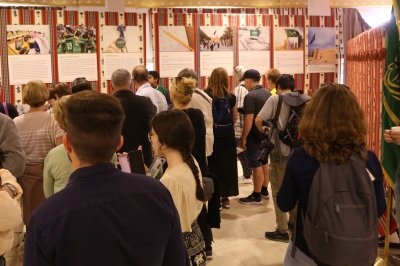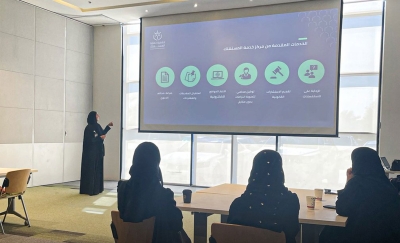

Care for Juvenile Delinquents in the Kingdom of Saudi Arabia is the Kingdom's effort to provide for the needs of juveniles. According to the Juveniles Law, a juvenile is defined as 'any male or female who is over the age of seven and below the age of eighteen.'
These efforts include approving a juvenile law under a Royal Decree dated August 1, 2018, and establishing institutions for their care, including: social observation homes, girl's care facilities, and social guidance homes.
Definition of a juvenile and their age in the Juvenile Law
The Juveniles Law in the Kingdom consists of twenty-four articles governing the affairs of juveniles. Key provisions of the law stipulate that a person under the age of seven who commits a punishable act is not subject to criminal prosecution. Additionally, a juvenile’s age is calculated according to the Hijri calendar, on the basis of the date of birth stated in any official document, and the court may refer the juvenile to the competent medical authority to estimate his age.
Juvenile detention procedures
Procedures for recording reports by juveniles and the hearing of juvenile witnesses as well as any subsequent procedures requiring a juvenile’s first appearance (in the presence of his guardian or a person acting in such capacity) are held in an appropriate place. The regulations specify the necessary procedures to ensure that the juvenile is not required to appear for any future action unless otherwise required. If a juvenile is caught red-handed, his guardian or a person acting in such capacity is notified. In cases other than being red-handed, the juvenile’s status is taken into consideration. The arrest should be in the presence of his guardian, a person acting in such capacity, or a representative from the home, or in a manner that ensures the presence of more than one person. The regulations specify arrest procedures. The notification of a juvenile is not deemed valid unless his guardian or the person acting in such capacity is duly notified.
Juvenile investigation procedures
A juvenile may not be detained for the purpose of investigation, unless deemed necessary by the Public Prosecution. In all cases, a juvenile may not be detained except at the home and pursuant to a reasoned detention order. A juvenile's detention ends upon the lapse of five days, unless the investigator decides to extend the detention period. In such case, he refers the case file to the head of the prosecution branch or a designee to issue an order to release said juvenile or extend his detention provided that the extended period does not exceed fifteen days from the date of the juvenile’s arrest. However, further extensions may be granted under certain circumstances. The juvenile’s statements are heard in the presence of his guardian or a person acting in such capacity, or a representative from the Ministry of Human Resources and Social Development, in a manner that ensures the presence of more than one person. The prosecution only questions a juvenile in the presence of his guardian or a person acting in such capacity, a social researcher or worker, or an attorney. The home where the juvenile is detained should, on a regular basis, provide the court with social reports on the juvenile's status along with the case file. Such report is provided whenever the court so requests.
Conditional release for juvenile offenders
Judgments rendered against a juvenile are recorded in a special register maintained by the home and should not be entered in a criminal record. The court may, pursuant to a reasoned decision, grant a conditional release to a juvenile, provided that he has served at least one-quarter of his sentence. If a juvenile breaches the conditions of release stipulated in paragraph (One) of this article prior to the expiry of the sentence, he is returned to the home to serve the remainder of the sentence.
Juvenile care institutions services
Juvenile care institutions, including observation homes, girls' homes, and social guidance homes, provide services to both boys and girls. These institutions offer accommodation, social care, healthcare, rehabilitation, and behavior modification programs, as well as cultural, social, and sports activities. Additionally, they provide monthly stipends to residents of guidance centers.
Related quizzes

